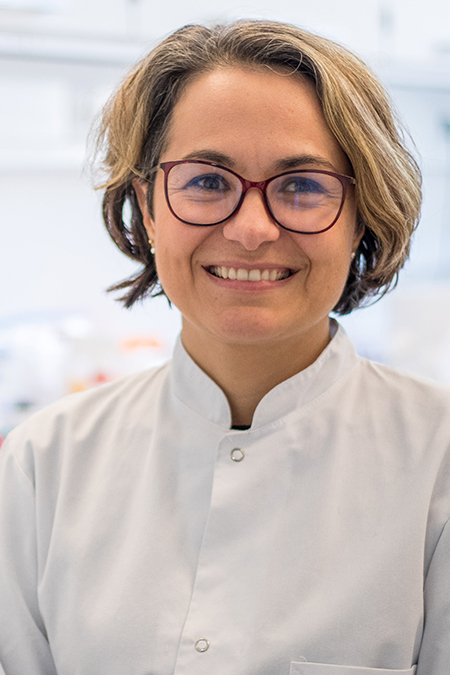Seeking mechanistic evidence for the antidepressant properties of cannabidiol
Meet Sâmia Joca
“Despite many antidepressant drugs currently available, they all face important limitations. The discovery of fast-acting antidepressants with better efficacy and safer therapeutical profile is an unmet and urgent medical need.”
Sâmia Joca from Brazil is interested in understanding the mechanisms associated with vulnerability to stress-related psychiatric disorders (primarily depression and anxiety) and the response to treatment. The overall aim of her research is to identify new targets for drug development and/or novel treatment options.
“In the past 10 years, I have been specially interested in the effects of cannabinoids in the brain, both natural - cannabis-derived - and endogenous - the natural cannabinoids produced by our body,” Sâmia Joca says and explains why this research area is important:
“Despite many antidepressant drugs currently available, they all face important limitations. The discovery of fast-acting antidepressants with better efficacy and safer therapeutical profile is an unmet and urgent medical need. The study of the mechanisms associated with rapid antidepressant response and also resistance to treatment are thus crucial to pave the way for better antidepressants.”
Currently, Sâmia Joca and her group investigate the therapeutic potential of cannabidiol (CBD) in animal models of depression and its underlining mechanisms. They are also interested in exploring the possibility that CBD might be a useful treatment strategy in the situation of resistance to monoaminergic antidepressants (treatment-resistant depression, TRD).

A career path from Brazil to Denmark
Sâmia Joca has always been fascinated with understanding the mechanisms behind the biological processes in our bodies, which made her move far away to get access to good universities in Brazil where she could study that. During one of her pharmacology classes in the second year of the Pharmacy school, she heard about the mechanism of action of drugs in the brain and became immediately interested in knowing more about it. She then joined the lab of Neurophysiology and Neuropharmacology as a research student and only left it to start her PhD in Pharmacology at the University of Sao Paulo (USP). After many years as associate professor at USP, where she created and coordinated the Lab of Neuropsychopharmacology at the Pharmacy School, she moved to Denmark and is now establishing a new research group at the Department of Biomedicine, Aarhus University.
“Throughout my years as a PhD student, I was supervised by a great mentor who encouraged me to always challenge myself, gave me tons of opportunities to develop as a researcher, and gave me freedom to test my own ideas. All that gave me the joy of discovery and the confidence to walk further in the career,” she says.